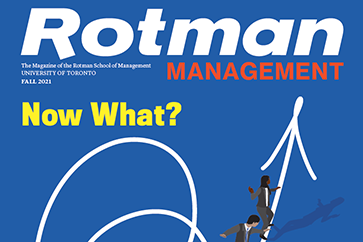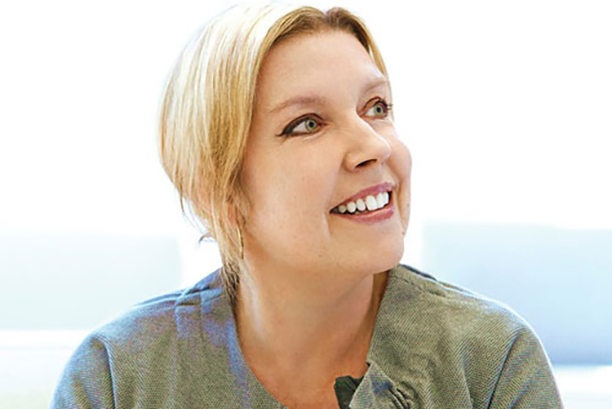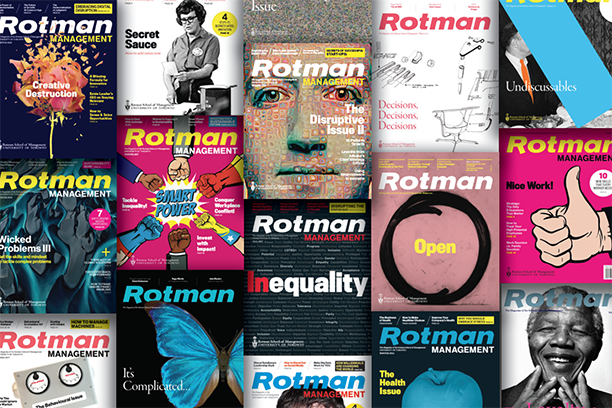Now What?
A year-and-a-half since the global pandemic turned our lives upside down, we continue to navigate the choppy waters that it has wrought. Some have observed that COVID-19 has been a great equalizer, affecting us across the board whether we work in the C-suite or on the frontline.
But at the same time, it has put the spotlight on widespread inequality and power imbalances in our society that demand our collective attention.

Purchase This Issue
Due to their timeless themes, Rotman Management issues remain relevant long after publication.
Buy a Digital Copy:
Zinio | Apple Store | Google Play

From the Editor
For leaders eager to seize this unique moment in history to jumpstart their organizations, the question is, Now what? In this issue of Rotman Management, we will explore some of the mindsets, approaches and operating principles that will be required to thrive in the post-pandemic world.

Subscribe Today
Rotman Management magazine is your destination for exclusive thought leader interviews, breakthrough research from leading academics, and innovative new ideas from top management thinkers.
Read + Learn
Pay-Per-View Articles
Since 2009, Harvard Business Review has been selling some of the feature articles from each issue of Rotman Management at www.hbr.org. These sales bring in revenue to support the Rotman School's innovative programs, student services and scholarships.
Idea Exchange